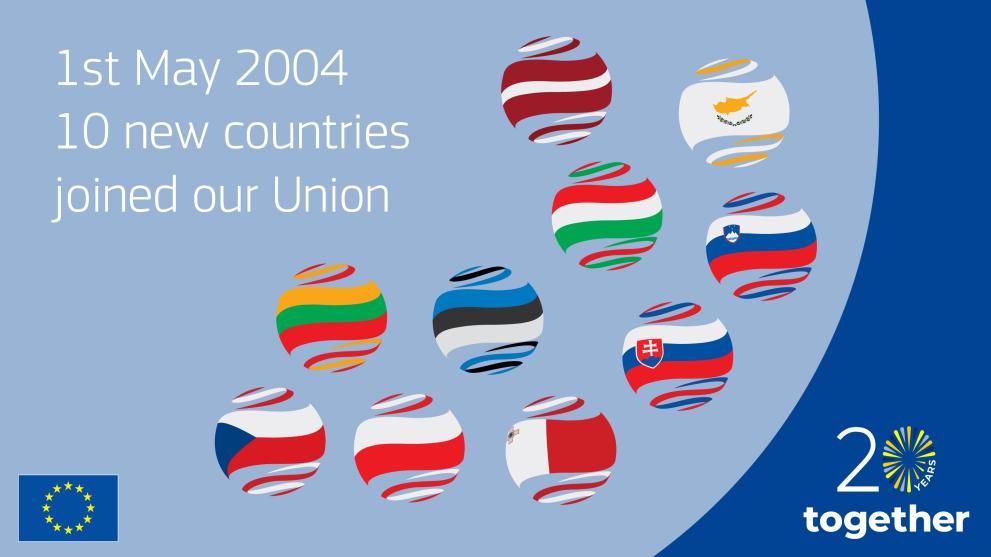
On 1 May, 20 years ago, Cyprus, the Czech Republic, Estonia, Hungary, Latvia, Lithuania, Malta, Poland, Slovakia, and Slovenia joined the European Union. Today, nine out of these ten Member States, are part of the Schengen area, guaranteeing free movement and promoting safe travel within Europe.
The Schengen area has evolved into the world's largest free travel area, guaranteeing smooth and secure travel to a population of almost 450 million people and bolstering the EU's competitiveness. Free movement of persons enables every EU citizen to travel, work and live in any EU country of their choice without special formalities. Today, the Schengen Area encompasses most EU countries, except for Cyprus and Ireland. Bulgaria and Romania became the newest Member States to join the Schengen area as of 31 March 2024. As a result, any person crossing the internal air and sea borders will no longer be subject to checks.
The EU enlargement of 2004 has also strengthened European security, spanning from greater police cooperation to external border controls. It has enhanced peace, stability, and expanded the area of liberty, security and the rule of law, enabling EU to better combat cross-border crime, including drug trafficking, money laundering and online criminality.
Find out more
Details
- Publication date
- 30 April 2024
- Author
- Directorate-General for Migration and Home Affairs
